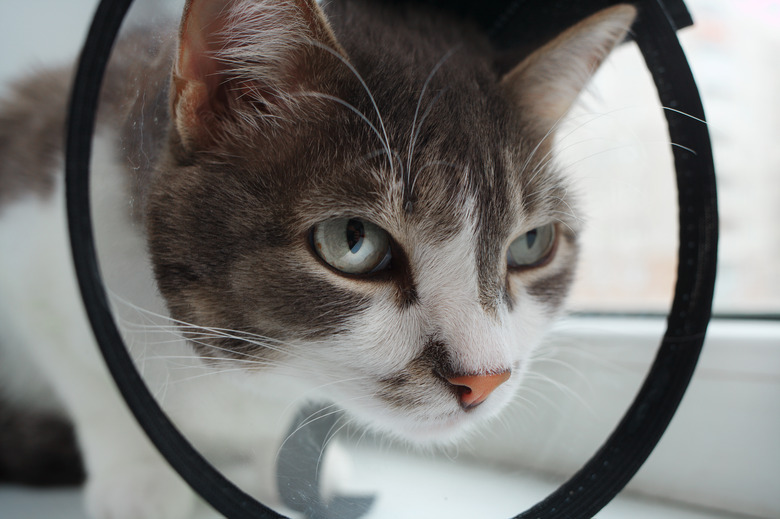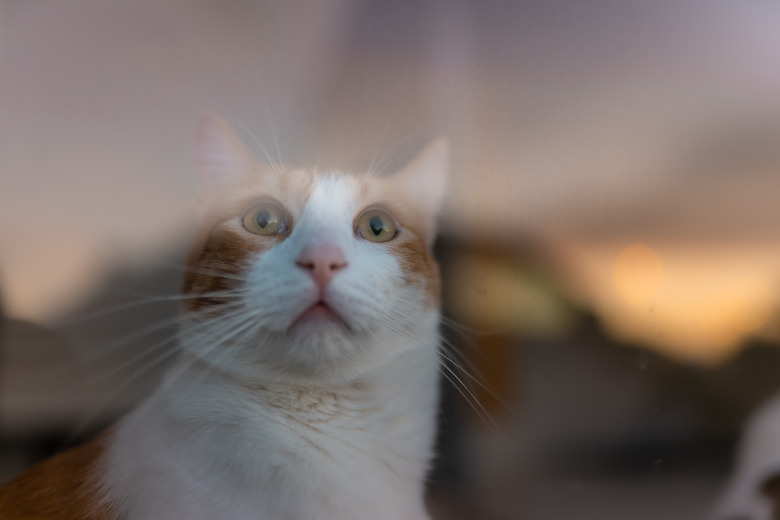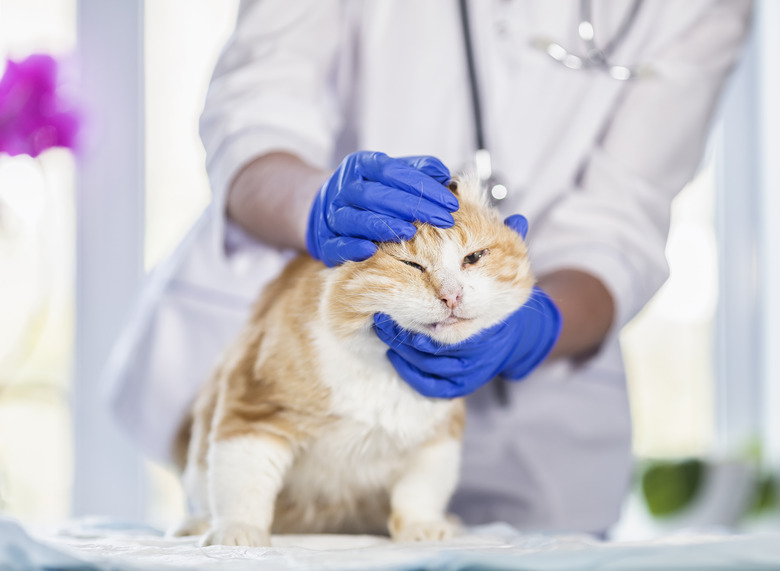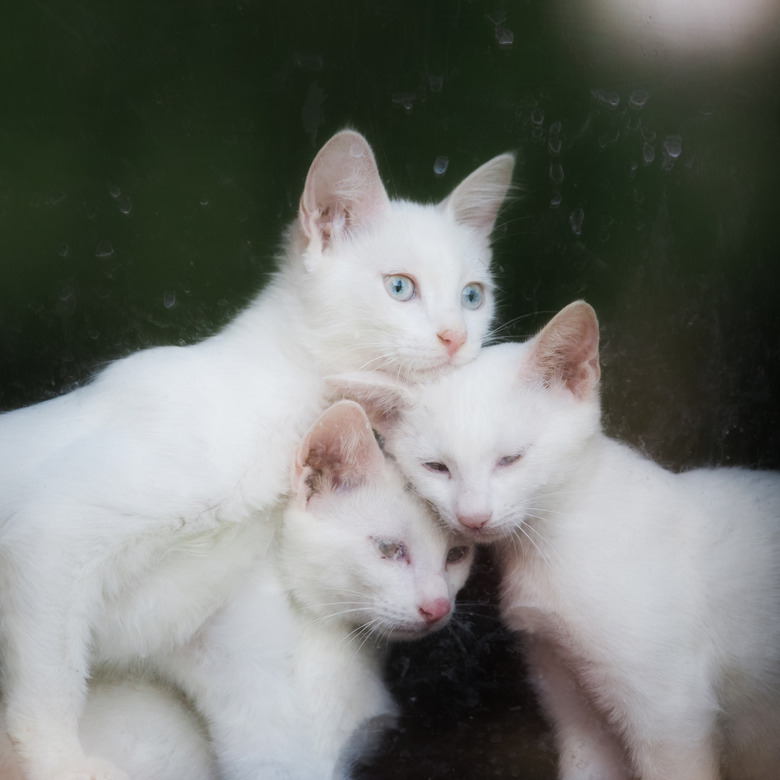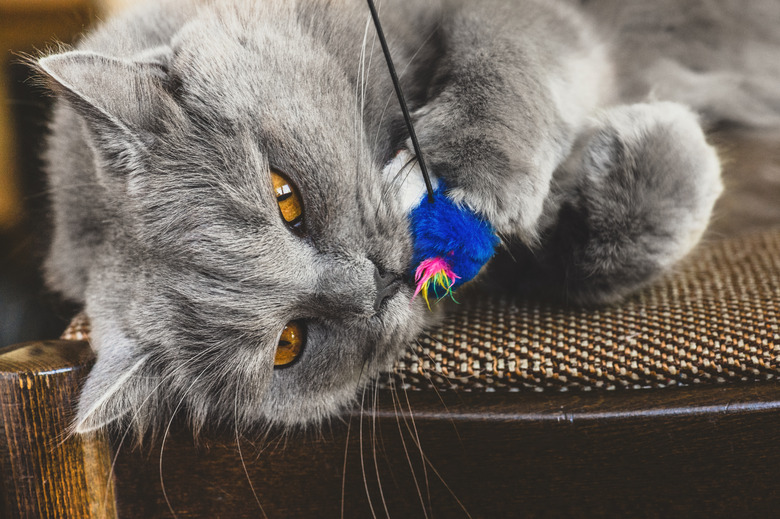Do Cats Know When Another Cat Is Sick?
Can cats sense when another cat is ill? There is some anecdotal evidence to suggest that healthy cats do know when another cat is sick or dying. In a multi-cat household, healthy cats may react differently to sick or dying cats. A cat's reactions to death or sickness can vary quite a bit. Cat owners may report a cat being unusually affectionate with a cat who is sick, or on the other hand, they may ignore or even become hostile to a cat who is sick.
Cat behavior in the wild
Cat behavior in the wild
Lions in the wild live in small groups called prides, but most cats in the wild live solitary lives. Tiger Tribe notes that a lion pride makes food available to the sick and wounded members of the pride, but not to the males. That suggests that a domestic cat's wild ancestors have at least some understanding of a cat being sick.
The loss of a feline companion
The loss of a feline companion
Hills Pet says that a cat can change their behavior when another cat in a multi-cat household is lost. The loss of a feline can lead to different behaviors that can be difficult to understand. If the cat that was lost was closely bonded to the remaining cat or cats in your household, they are likely to be more visibly altered than if they were not close to the lost cat. Even if the closeness was one of antagonism, i.e., they feuded with the cat that was lost, they are still likely to grieve.
We also know that cats can pick up on their owner's emotions. If you are distressed at the loss of a feline pet, your cat may pick up on your emotions of sadness. A cat who is grieving can display that grief in a number of ways, from seeming completely unaffected to seeming happy, to seeming to become depressed. Several sources online cited a survey by the American Society for the Prevention of Cruelty to Animals. Though the results of this survey don't seem to be available online anymore, that survey found that out of 160 households surveyed, the remaining cats ate less, slept more, and became more vocal after the death of a companion cat. This was a temporary behavior change that lifted after six months or less.
Non-recognition aggression in cats
Non-recognition aggression in cats
If you took your sick cat to the vet and then its companion cat is acting aggressively after you returned from the vet, it could be something called non-recognition syndrome. It might not be specifically because the one cat is sick; rather it might be that the sick cat smells like a veterinarian's office and everything that goes along with that: other animals, the vet herself, alcohol, or other medication or treatment that your cat might have received.
Cat Behavior Solutions explains that cats communicate so much through scent, that when a cat's signature scent is lost or masked, as by a trip outside of the home to a vet's office, it can mean other cats in the household can be confused. The companion cat may perceive the new scent as a threat and become aggressive. If this is the case, keep the cats separated until the cat's "other" scents have time to wear off. Try using a calming pheromone spray, or when you return home, rub your sick cat with something that smells like home, like it's favorite blanket to sleep on.
Grief in multi-cat households
Grief in multi-cat households
The veterinarian at the Manhattan Cat Specialists, Dr. Arnold Plotnick, clinic wrote about his experiences in seeing other cats grieve the loss of a feline companion. A couple of the stories he witnessed, of changes in cats behavior after the loss of another cat in a multi cat household, seem convincing. The blog post tells of a cat who lost her sister to a dog attack in their yard while the sister cat was watching. After that, the sister cat exhibited signs of depression, including not eating, lethargy, and staring off into space.
His recommendations include not letting a cat outdoors for a while, if possible, as they might go searching for their lost companion. Enriching the environment of the remaining cat with new toys or treats might help as well. And even though you, as a human, might appreciate the distraction of a new cat in the household, a cat who is grieving may not. They may need time to process the loss in their own way.
Conclusion
Conclusion
The bottom line is that it seems obvious that cats do know when another cat is sick, but we can't prove it. Cat behavior is sometimes a mystery, and how they change their behavior, or don't change their behavior, in response to another cat being sick or dying is one of those mysteries. Any cat owner or veterinarian will be able to share anecdotes of things they've witnessed, but cat behavior varies so much that it's not possible to put a definitive yes or no on something like this.
If your cat seems like she is acting aggressively to another cat, or is mourning the loss of a feline companion, it could be safe to say that yes, she knows something has changed. Whether she knows something has changed because the cat is "sick," is impossible to answer.
